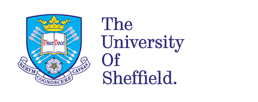
Steffen Witte, Heinz Schmidli, Anthony O'Hagan and Amy Racine
Novartis Pharma AG, Basel, Switzerland and University of Sheffield, UK
Publication details: Pharmaceutical Statistics 10, 427–432. 2011.
In organ transplantation, placebo controlled clinical trials are not possible for ethical reasons, and hence non-inferiority trials are used to evaluate new drugs. Patients with a transplanted kidney typically receive three to four immunosuppressant drugs to prevent organ rejection. In the described case of a non-inferiority trial for one of these immunosuppressants the dose is changed and another is replaced by an investigational drug. This test regimen is compared with the active control regimen. Justification for the non-inferiority margin is challenging as the putative placebo has never been studied in a clinical trial. We propose the use of a random-effect meta-regression, where each immunosuppressant component of the regimen enters as a covariate. This allows to make inference on the difference between the putative placebo and the active control. Based on this, various methods can then be used to derive the non-inferiority margin. A hybrid of the 95/95 and the synthesis approach is suggested. Data from 51 trials with a total of 17002 patients were used in the meta-regression. Our approach was motivated by a recent large confirmatory trial in kidney transplantation. The results and the methodological documents of this evaluation were submitted to FDA. FDA accepted our proposed non-inferiority margin and our rationale.
Keywords: Non-inferiority margin, 95/95 rule, preservation method, synthesis approach, hybrid approach, meta analysis, constancy.